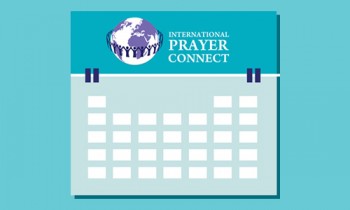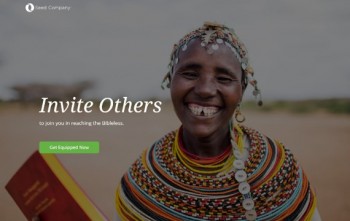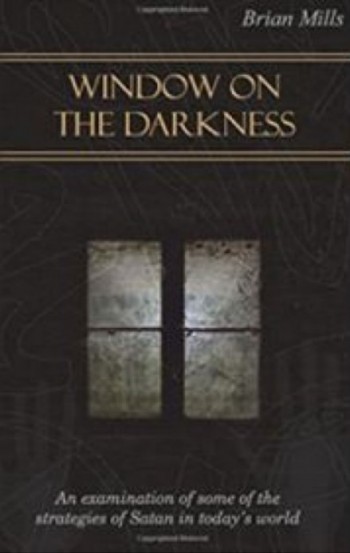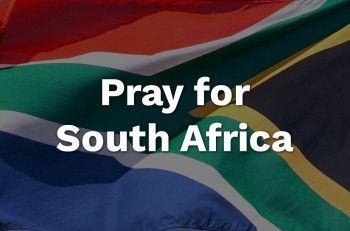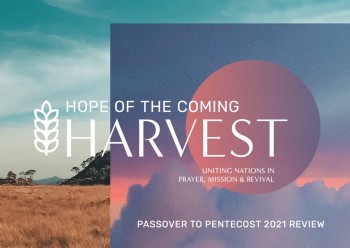
Super User
Lorem ipsum dolor sit amet, consectetur adipisicing elit, sed do eiusmod tempor incididunt ut labore et dolore magna aliqua. Ut enim ad minim veniam, quis nostrud exercitation ullamco laboris nisi ut aliquip ex ea commodo consequat. Duis aute irure dolor in reprehenderit in voluptate velit esse cillum dolore eu fugiat nulla pariatur
Global Family 24-7 Prayer Room
https://www.globalfamily24-7prayer.org/
HOPE Movement 90 Days of Hope (to 28 August)
https://www.globaldayofhope.com/
Heal our Land- Hope for Revival (South Africa)
www.globalvoiceofprayer.com/heal-our-land/
Japan 1 Million Hours Prayer - July 23 – Sep 5
www.japan1million.com
NECF Malaysia: 40 Days Fast & Prayer
7 Aug - 15 Sept 2021
www.necf.org.my
Australia Prays – August 22nd
www.nationaldayofprayer.org.au/lordhavemercy
72 Hours - Prayer for Nigeria Aug 22 - 25th 2021
www.aslpn.org
Global Day of Hope - August 28th
www.globaldayofhope.com/
1st Friday GO PRAY – September 3rd 2021
www.gopray.world
10 Days 2021 | September 6 -16
www.10days.net
9/11 The Romans Project (A Holy Convocation)
Reconnecting Ministries / THE RETURN
www.romans911.org
The Return Sept 10-11 2021
www.thereturn.org
Fire on the Altar 2022 (Herrnhut)
April 18 – Oct 15 2022
www.jh-herrnhut.de/events/fire-on-the-altar-2022/
David's Tabernacle: How God's Presence Changes Everything
An ancient pattern of worship is re-emerging on the earth.
In Acts 15, the apostle James quotes the book of Amos, declaring that the “tabernacle of David” will be restored, and the people of the earth will respond to God’s gracious invitation into fellowship with Him.
David’s tabernacle is being restored in our day by the enthronement of God upon the praises of His people through worship!
The Lord is birthing a global day-and-night worship and prayer movement that will lead to a historic harvest of souls entering His Kingdom.
Worship creates encounter with the living God and His presence, bringing heaven to earth: wholeness and transformation to individuals, to cities, and to nations.
 You will discover your original purpose and eternal destiny as you step into David’s Tabernacle.
You will discover your original purpose and eternal destiny as you step into David’s Tabernacle.
Matthew Lilley (pictured right) is an author, worship leader, intercessor and Bible teacher with a passion for God’s presence, extravagant worship & prayer and a desire to see cities transformed by Jesus. He has helped launch two houses of prayer in North Carolina and has also served in national leadership roles in worship & prayer movements such as Burn 24-7 and Awaken the Dawn.
'God described David as a 'man after his own heart.' David's Tabernacle helps you and me discover what was IN David's heart that moved the heart of God! This is one of the best books written on the subject! I highly recommend it!' Dr Jason Hubbard - Director, International Prayer Council
This book is available paperback and for download. Buy it online at Amazon, Barnes & Noble AND Apple Books
Dear International Prayer Connect Pray for ZERO warriors,
Thank you for fulfilling the Great Commission through prayer so all people can have God’s Word in their language. Your role is critical to getting to ZERO!
If we are to meet the God-sized goal of starting Bible translation in every language by 2025 in the remaining 1,903 Bibleless people groups, we need the power of the Holy Spirit and a global team who will go the distance together.
We want to invite you to a new initiative that will create and unite advocates as voices for the Bibleless in communities near and far. Click below to hear about your role in this:
Become a Voice for the Bibleless...
Visit The Seed Company Advocacy Webpage for further guidance and resources on your journey.

Solomon Lujan - Global Director of Prayer
Email: This email address is being protected from spambots. You need JavaScript enabled to view it.
This is a second edition of this widely read and highly acclaimed book written by the respected father of the worldwide Prayer Movement - Brian Mills.
Have you ever wondered just why the darkness in the world today seems to be getting darker, and what can be done about it?
This book sheds fresh light on this topic, and on the spiritual nature of this darkness. It shines the light of Scripture on the evil one and on the way in which so many have become bewitched. This is a clarion call to the church and individual Christians to get ready to do battle with the powers of darkness, and to shine Christ's light more powerfully.
Brian Mills writes out of many years of experience in international prayer ministry. He is a senior advisor in the International Prayer Council and is one of the leaders in the International Reconciliation movement. He has ministered in over 75 nations and authored nine books to date. He is also part of a global group that is seeking to understand more about the dark spiritual powers at work in the world.
Excerpts from some recent reviews:
"An informative book on the operation of spiritual darkness and the need for Christ’s people to stand against it." (John D Robb - Chairman, IPC Prayer)
'Thought provoking insights into the spiritual aspects of today's world and reminder of our role to pray. Well worth a read.' JRB - Amazon
'An easily read and timely call to vigilance and to personal holiness. Much needed. We've bought a number of copies for passing on to friends.' RC - Amazon
'Strategic book for understanding tactics of the enemy! I have now read this twice it is so appropriate for preparation for mission, for church leaders and intercessors!' Anon - Amazon
This version includes some minor revisions, lay-out changes and is increased to 150 pages.
Order ‘Window on the Darkness’ by Brian Mills in print or Kindle formats from:
Amazon USA http://a.co/7zeqIKd $11.36 Paperback | $3.74 Kindle
Amazon UK http://amzn.eu/0BMEL6l £8.99 Paperback | £2.99 Kindle
Join the 7 Days of Prayer for South Africa
This report was prepared with grateful thanks to the input of 7 colleagues, Pastors and a Bishop in Gauteng, KwaZulu Natal, Limpopo and Western Cape Provinces, South Africa.
Please pray against a spirit of violence and disruption threatening the peace and stability of the nation of South Africa. It started following the jailing of former president Jacob Zuma last week. However, it is widely understood that the root of the ongoing situation is criminal rather than political.
KwaZulu Natal & Gauteng provinces are hotspots at present but there are fears that it may spread to other regions. 45 people have died and 757+ have been arrested during riots and looting sprees over these past 5 days.
As we are preparing this Prayer Alert we are receiving reports of the use of rubber bullets by the forces to deter looters around Johannesburg. Durban has pockets of unrest with occasional gunfire being heard.
Across Gauteng Province, shops and businesses remain closed (in the Towns and Cities). In the Townships, shops have been looted, emptied and destroyed. There is no bread and milk and people are boarding taxis to the towns and cities to buy essential groceries. Township Garages are closed, cars are travelling long distances seeking fuel. It remains very tense. There are reports of continued looting in Soweto and Orange Farms Townships. Elsewhere, we are hearing of live ammunition being used by security forces.
 On Monday, 10 people lost their lives in a stampede of looters at a shopping mall in Soweto. A policeman is among those killed.
On Monday, 10 people lost their lives in a stampede of looters at a shopping mall in Soweto. A policeman is among those killed.
South Africa has been on the crest of a devastating third wave of covid-19 with huge pressures on the medical services and hospitals. Recent lockdowns have had a severe impact on the poor, many of whom live on what they earn in cash each day, and as a consequence, have gone hungry.
The churches have been prevented from meeting for 4 weeks with good government intent, due to the covid lockdown, although many have questioned the basis of the decision. This has caused isolation among poor communities and reduced the often meagre income of the pastors to virtually nothing. IPC regional representatives are endeavouring to mobilise prayer and to encourage the churches in these two provinces.
Additionally, there have been increased continuous power cuts (load-shedding of electricity) for up to 24 hours at a time causing much anger among the people.
 As well as the widespread looting & vandalism of shopping malls there are incidences of attacks on road traffic and looting and damage at schools and farms. The repair will likely cost South Africa many millions amidst what is an already shaky economy.
As well as the widespread looting & vandalism of shopping malls there are incidences of attacks on road traffic and looting and damage at schools and farms. The repair will likely cost South Africa many millions amidst what is an already shaky economy.
It is believed that this is a backlash to a lot of evil & corruption being exposed over the past year as well as Kingdom breakthroughs.
Pray that the Church will arise, proclaim the truth of God’s Word and also the prophetic destiny of South Africa!
Let’s Pray for South Africa:
- That the looting, violence and civil unrest will stop and peace will return to the streets.
- For the Police Force and the Defense Force that they will be able to restore and maintain order.
- That the South African people will not respond in fear but stay calm, focused and be in a position where we anchor ourselves in the Lord.
- That food and fuel supplies will be delivered to all those who need them.
- For resolutions to be found for the underlying social and economic problems.
- For the creation of more jobs in South Africa. There is a very high unemployment rate.
- For the Churches to be able to gather again and Pray together - 'Together we will stand, divided we will fall'
- That the covid vaccinations and medical services will be restored to their intended levels.
- For the President Cyril Ramaphosa, the Government and the Police of South Africa to lead, govern and administer justice with wisdom and integrity, standing against corruption.
- That we are able to seek God as a nation during this time. Pray for the hearts of our leaders to turn back to God. (2 Chron 7:14)
- Let's pray Psalm 140 with (and for) the people of South Africa
We are pleased to bring you this July 2021 edition of IPC Connections.
Our Editorial article this month is an astounding report from the Passover to Pentecost Group! These partnered events, missions and media projects have collectively seen 20 million new Jesus followers added to the Church since last year. This 2021 Review details massive numbers coming to faith in Jesus Christ, Gospel movements emerging in the nations, and disciple-making churches being planted in unreached areas. Let’s be in prayer for these huge numbers of people of all ages coming to faith, that they will grow into spiritual fullness in Christ. (Col 2:6-7)
Read about the 1 Million Hours of Prayer for Japan and the Olympic Games initiative that we are jointly launching with JiSP (Japan International Sports Partnership), in our second editorial article. Sign up for the Prayer Guide.
We would welcome you to join us for the launch of the 1st FRIDAY GO PRAY online prayer event on Friday 6th August at 6AM Pacific time during which we will be Praying for the continued spiritual harvest AND for Japan and the missional opportunities that the Olympic Games present.
We are not spotlighting a team member this month to make space for the Editorial article. We would however covet your prayers for the whole team right now. The IPC Leadership Team and Board’s representation spans the continents. They are each involved in a local church as well as ministering nationally and internationally. Please pray for strength, good health, equipping and protection for them and their loved ones, as they continue to serve, often at personal cost, during these challenging times.
Thank you for continuing to partner with us in mobilising and informing united prayer across nations, denominations, movements, and generations for the fulfilment of the Great Commission.
May we express grateful thanks to Andy Page and the IPC Editorial Team who put this email together each month.
Every blessing,
Jason Hubbard - Director
International Prayer Connect
Please use this link if you would like to sow into IPC’s ministry with a donation
Disclaimer… The views and opinions expressed in IPC Connections and the articles on our website are those of individuals and our partner organisations. They do not necessarily represent the policies or views of IPC or its individual leaders.
We aim to respect the diversity within the prayer movement and yet embrace our unified calling to mobilise prayer for the nations. (2 Chron 7:14) If you wish to discuss the appropriateness of any articles, please contact us.
Our Editorial Article this month is an extremely encouraging review from the Passover to Pentecost Group - a number of Christian prayer and missions networks who have come together in John 17 Unity to co-ordinate their events and initiatives with a common goal - contending for revival!
Read the FULL REPORT | Download PDF
It’s our desire to see a massive full-scale revival and awakening erupt in the nations of the earth! We have been asking for another historic move of the Holy Spirit, a Gospel Explosion to sweep across the globe and awaken a generation to wholehearted love for Jesus!
“For the earth will be filled with the knowledge of the glory of the Lord as the waters cover the sea” (Hab. 2:14).
Despite the challenges that we are all facing with the pandemic, we are seeing massive numbers of people coming to faith in Jesus Christ, gospel movements emerging in the nations, and disciple making churches being planted in unreached areas. Since launching this collaborative effort in 2020 of prayer, mission, and church leaders partnering together, we have seen 20 million new Jesus followers added to the church!
Our theme for 2021 has been ‘Hope of the Coming Harvest.’ As you read through these first-hand reports, you will be encouraged to see evidence of this global harvest emerging in the nations. This year we estimate approximately 70 million believers were mobilized in united prayer partnering together with 50 million believers sharing their faith from Passover through to Pentecost!
It has been astounding to watch so many come together in an expression of John 17 ‘oneness’ across nations, denominations, and generations for the fulfilment of the Great Commission. Only Jesus gets the credit. He is the One who is leading the global prayer and mission’s movements. May the Lord continue to knit our hearts together as ‘family’ growing in love for one another, centered on the Gospel of Jesus Christ, and grounded on the authority of God’s word! May we continue to see a global Christ-awakening in the nations of the earth, as prayer is prioritized, believers are mobilized, unity is maximized, and communities are gospelized.
It’s all about a Christ-awakening, where the Spirit of God uses the Word of God to re-awaken God’s people back to God’s Son for all that He is! We want to enter into the power and pleasure of being obsessed with the magnificence of Jesus. He is the dominating personality in this age and in the age to come!
God is truly bringing us into a ‘decade of harvest.’ One of the goals that we launched in 2020 was to see 100 million in united prayer for a ‘billion soul harvest.’ During the month of May this year millions were praying and sharing their faith around the world in partnership with the Go Movement.
Thank you to all those who have served, prayed, worshipped, and collaborated in these various Spirit-led, Christ-exalting, prayer and evangelism initiatives!
WHAT AN AMAZING SEASON FROM PASSOVER TO PENTECOST 2021!
“May the Lamb who was slain receive the due rewards for His suffering.”
Read the FULL REPORT | Download PDF
Jason Hubbard & Andy Page - International Prayer Connect
Graham Power & Anja Letsatsi - Global Voice of Prayer,
together with the global prayer & mission networks
INTRODUCTION
Our Editorial article this month is an extremely encouraging report from the Passover to Pentecost Group - a number of Christian prayer and missions networks who have come together in John 17 Unity to co-ordinate their events and initiatives with a common goal - contending for revival!
It’s our desire to see a massive full-scale revival and awakening erupt in the nations of the earth! We have been asking for another historic move of the Holy Spirit, a Gospel Explosion to sweep across the globe and awaken a generation to wholehearted love for Jesus!
“For the earth will be filled with the knowledge of the glory of the Lord as the waters cover the sea” (Hab. 2:14).
Despite the challenges that we are all facing with the pandemic, we are seeing massive numbers of people coming to faith in Jesus Christ, gospel movements emerging in the nations, and disciplemaking churches being planted in unreached areas. Since launching this collaborative effort in 2020 of prayer, mission, and church leaders partnering together, we have seen 20 million new Jesus followers added to the church!
Our theme for 2021 has been ‘Hope for the Coming Harvest.’ As you read through these firsthand reports, you will be encouraged to see evidence of this global harvest emerging in the nations. This year we estimate approximately 70 million believers were mobilized in united prayer partneringtogether with 50 million believers sharing their faith from Passover through Pentecost!
 It has been astounding to watch so many come together in an expression of John 17 ‘oneness’ across nations, denominations, and generations for the fulfillment of the Great Commission. Only Jesus gets the credit. He is the One who is leading the global prayer and mission’s movements. May the Lord continue to knit our hearts together as ‘family’ growing in love for one another, centered on the gospel of Jesus Christ, and grounded on the authority of God’s word! May we continue to see a global Christ-awakening in the nations of the earth, as prayer is prioritized, believers are mobilized, unity is maximized, and communities are gospelized.
It has been astounding to watch so many come together in an expression of John 17 ‘oneness’ across nations, denominations, and generations for the fulfillment of the Great Commission. Only Jesus gets the credit. He is the One who is leading the global prayer and mission’s movements. May the Lord continue to knit our hearts together as ‘family’ growing in love for one another, centered on the gospel of Jesus Christ, and grounded on the authority of God’s word! May we continue to see a global Christ-awakening in the nations of the earth, as prayer is prioritized, believers are mobilized, unity is maximized, and communities are gospelized.
It’s all about a Christ-awakening, where the Spirit of God uses the Word of God to reawaken God’s people back to God’s Son for all that He is! We want to enter into the power and pleasure of being obsessed with the magnificence of Jesus. He is the dominating personality in this age and in the age to come!
God is truly bringing us into a ‘decade of harvest.’ One of the goals that we launched in 2020 was to see 100 million in united prayer for a ‘billion soul harvest.’ During the month of May this year millions were praying and sharing their faith around the world in partnership with the Go Movement. Thank you to all those who have served, prayed, worshipped, and collaborated in these various Spirit-led, Christ-exalting, prayer and evangelism initiatives!
WHAT AN AMAZING SEASON FROM PASSOVER TO PENTECOST 2021!
“May the Lamb who was slain receive the due rewards for His suffering.”
Jason Hubbard & Andy Page - International Prayer Connect
Graham Power & Anja Letsatsi - Global Voice of Prayer, together with the global prayer & mission networks
2 APRIL | Good Friday Online Event
Pulse Movement | www.goodfriday.com
14 APRIL – 23 MAY | The Jesus Fast
www.thejesusfast.global
1 MAY | World Prayer Together
www.worldprayertogether.com
13 – 22 MAY | 10 Days of Praise
www.jwipn.com | www.waymakers.org
13 – 23 MAY | 10 Days Pentecost
www.10days.net | www.globalfamily24-7prayer.org
17 MAY | Shavuot Gathering
www.watchmen.org
22 MAY | The March for Jesus Global
www.themarchforjesus.org
22 MAY | GKPN Global Youth Movement Event
www.gymglobalyouthmovement.org
23 MAY | Global Day of Prayer & Pentecost Broadcast
www.globaldayofprayer.com
29 MAY | GO Day
www.gomovement.world
30 MAY – 28 AUGUST | 90 Days of Hope
www.globaldayofhope.com
April 2nd 2021
GOOD FRIDAY WORLDWIDE BROADCAST

Good Friday was a global outreach event focused on sharing the good news of Jesus. It was broadcasted across the world from sunup to sundown April 2nd and was hosted by Pulse - a movement aiming to bring the hope of Jesus to the next generation — whether it’s through live events, livestreams, local revival gatherings, raising up leaders, or creating digital resources.
A few highlights:
• Over 180 million people viewed the broadcast
• Over 1.1 million people responded to the gospel
• 506 host sites
• 39 languages
• 186 countries, 24 territories
The broadcast was taken into prisons and people were responding to Jesus. It is believed that that the program was taken to other areas that the organizers are not aware. There were many other TV stations that picked it up and the reach just continued to multiply. There were many individual testimonies that were received of people watching the program and then going to church the next day; kids watching the program, choosing to follow Jesus and then leaving the streets and wanting to be cared for.
Contact:
JAY ANDERSON | Pulse Movement
This email address is being protected from spambots. You need JavaScript enabled to view it.
pulse.org
April 14th – May 23rd 2021
YESHUA FAST

Like the Spirit drove Jesus into the wilderness for the 40 day fast (the biblical era shifting fast) that inaugurated the first great Jewish harvest of souls, there was a sense that this 40 day Jesus (Yeshua) Fast April 14th – May 23rd (Pentecost Sunday) was a tipping point for a new day of salvation for Israel and harvest in the earth.
The Yeshua Fast was hosted by Lou Engle Ministries.
10,000 plus prayer warriors from across the globe were a part of these 40 days of prayer fasting for Israel and the Great Harvest.
The Israel Virtual House of Prayer was also birthed during this time as thousands logged on for 24/7 prayer for Israel.
Contact:
LOU ENGLE | Lou Engle Ministries
www.thejesusfast.global | www.israelvhop.com
May 1st 2021
World Prayer Together | GO PRAY

GO MONTH was launched with a global day of prayer on Saturday May 1st, 2021 which was aptly entitled World Prayer Together | GO PRAY.
It was headlined with a 2-hour programme consisting of live worship, prayers for GO MONTH plus all-age focused prayers for the nations and unreached peoples of India, China and the Middle East. The International House of Prayer - Kansas City kindly hosted the event with a number of respected prayer and mission leaders taking part.
World Prayer Together | GO PRAY was broadcast prime time on GOD.TV at 7.30pm in each region and repeated on Saturday 8th May. GOD.TV has a global reach of 300 million households in 200 countries. The programme was re-broadcast on digital tv in Finland, Romania and Latin America in English, Spanish and Portuguese increasing the potential reach by an estimated 80 million households. Additionally, the programme was livestreamed from IHOPKC and viewed with subtitles in 33 languages online.
The program was dubbed in ten languages with translated prayer guides and information on custom landing pages. A global social media campaign reached 3 million people.
The team were encouraged to hear from a number of church and mission organisation leaders who had committed their members to be watching the broadcast and to each be praying for 5 souls during May! These groups alone represent 70 million people.
The program host, Dr Jason Hubbard, Director of International Prayer Connect said, ‘It was humbling yet amazing to have people taking part from every continent, right around the globe, committing to pray for GO MONTH. I am sure that despite the challenges that we are all facing, the fields are indeed ripe for this season of great harvest in the spirit of Luke 10:2!’
Contact:
JASON HUBBARD | International Prayer Connect
This email address is being protected from spambots. You need JavaScript enabled to view it.
May 17th 2021
SHAVUOT GATHERING

During the Shavuot Gathering, thousands around the globe had the privilege of standing with and hearing from our family in India and the Middle East. The enemy has brought turmoil to these regions, but the Lord will bring beauty out of ashes. Where the world is seeing destruction, we declare resurrection. Where the spirit of death has been prevalent, we speak abundant life. During our time together we felt the Lord release an atomic bomb of love over us. This love is washing, healing, and transforming our nations through the release of His Spirit and the power of His Kingdom.
In light of the conflict happening in the Middle East, we choose to rise up and speak from a higher Kingdom perspective. Ishmael came out of the womb of Hagar the Egyptian. Egypt, as the mother of the descendants of Ishmael and all who identify with his spirit, holds the authority to call home her descendants. The orphan spirit that has long plagued the Arabs must be broken. It is time for the restoration of the house of Abraham. During this gathering, a deep longing was released from the heart of Egypt to call home the sons of Ishmael. There is no other hope except through love, forgiveness, and reconciliation.
During the Shavuot Gathering, a pure sound was released to call forth blessing over the children, the orphans, and all those who were suffering in India. Devastated by the recent wave of the pandemic, we stand with our family in India in unrelenting prayer. We lift up the name of Yeshua and intercede for the healing and revival of this beautiful nation. The heart of the family is that none will be left behind. We ache with India, may her pain become our pain.
Contact:
RACHEL DEMIAN | Watchmen for the Nations
This email address is being protected from spambots. You need JavaScript enabled to view it. | www.watchmen.org
May 13th – 22nd 2021
TEN DAYS OF PRAISE

We heard many expressions of thanks, joy and blessing during the Ten Days of Praise facilitated by Waymakers, Jericho Walls International, Global Voice of Prayer and many others.
The Ten Days of Praise was designed to deepen and strengthen prayers of praise as a prelude to the March for Jesus, offering expressions of biblical praise to the ascended, glorified Lord as the Lamb of God. The theme of the March for Jesus was the exalted Lamb, worthy of the worship of the nations. The praise guide was freely distributed in electronic formats in Asia, Africa and the Americas. Leaders from several countries reported that the biblical exaltation of Christ helped people from different churches to unite in passionate prayers of hope for Christ to be glorified among the nations. The praise guide was translated into Spanish for wide distribution in several countries in Latin America. Leaders in several African and European countries encouraged many from different church streams to lift and focus their prayers on Christ.
“We felt so lifted up by declaring and praising the Name that is worthy. We definitely want to do this again!” – Comments from India group praising Jesus 24/7 during the 10 Days.
We experienced such a positive and uplifting time of prayer during these 10 days across the nation. More than 80 local prayer networks and groups in various communities participated. Most of these groups would literally be praising Jesus in one hour shifts around the clock. These 10 days also added momentum to seven regular weeks of prayer for revival throughout the year.
We also felt that Jesus was drawing many souls into His kingdom during this time of praise. The following verse stood out:
“After this I will return and rebuild David’s fallen tent. Its ruins I will rebuild, and I will restore it, that the remnant of men may seek the Lord.” (Acts 15:16,17)
May the Lord continue to raise up even the younger generation to praise Him day and night.
Contact:
STEVE HAWTHORNE | Waymakers
This email address is being protected from spambots. You need JavaScript enabled to view it. waymakers.org
Contact:
DANIEL BRINK | Jericho Walls
This email address is being protected from spambots. You need JavaScript enabled to view it. www.jwipn.com
May 13th – 22nd 2021
10 DAYS PENTECOST

During the 10 Days leading up to Pentecost (May 13-23), 10 Days partnered with the Global Family 24/7 Prayer Room to host increased 24/7 prayer via Zoom. Four daily teachings were hosted as part of prayer time as a way to encourage and build up the intercessors with anointed leaders from all 6 continents. Many of these teachings were very anointed and impactful, and the cumulative effect was very powerful. Various in person 10 Days Pentecost gatherings took off in various locations including Colorado, Dallas, and especially in Pakistan where 15 locations joined in separate from the Zoom. We were amazed as God multiplied prayers during this time, no doubt much beyond what we can currently see.
Testimony from Indian Pastors on 10 Days Pentecost:
“During the 2 hours we prayed with great intensity for India - as India was going through great despair with Covid - and in the church there was great sadness and mourning for many Pastors who lost their lives due to Covid. But the Indian pastors and church leaders who join said that in this adversity, God has encouraged the church in building the spiritual strength of Pastors and prayer warriors, there has been much prayer and fasting during the Pentecost period, much united prayer on Zoom. Church leaders put aside their differences to join together in prayer - for God’s hand to move in India and prayed in unity for Salvation for India. And God has answered their prayers - there has of recent been a substantial reduction in Covid numbers, and they are working together in a unity which they did not have before. They are also joining together to reach out to their communities and offering food and help to the community. And the Zoom prayers of Pastors and leaders joining together from different cities in India is continuing. Last 2 weeks when they have joined for prayer it has been so uplifting to hear their faith filled prayers of thanksgiving as they are praying with hope for God to open hearts and minds in India.”
Contact:
JONATHAN FRIZ | 10 Days
This email address is being protected from spambots. You need JavaScript enabled to view it. 10Days.net

May 22nd 2021
GLOBAL YOUTH MOVEMENT 2021 GATHERING
GKPN in partnership with ministries and churches around the world hosted one of the biggest events for young Christians worldwide on May 22nd 2021. The event pivoted around 3 central themes: Holiness, mission & discipleship.
Preachers included Robert Morris, Joakim Lundqvist, Edmund Chan, Julius Rwotlonyo, Sergio Hornung and Paulo Mazoni, and worship was led by bands from Bethel, Gateway and Watoto. Powerful testimonies were shared by youth from many countries.
A FEW STATISTICS:
• 8,259 Individual registrations
• 2,883,755 Church registrations
• 108401 Churches involved
• 18,000 YouTube
• 34,415 YouTube partner churches
• 1,592,145 Total estimated viewers
TOP COUNTRY PARTICIPATION
• Brazil
• Italy
• Russia
• Egypt
• Philippines
• Uganda
Contact:
ELIAS DANTAS | GKPN
This email address is being protected from spambots. You need JavaScript enabled to view it.
gymglobalyouthmovement.org
May 22nd 2021
MARCH FOR JESUS

The March for Jesus is a procession of praise through the streets of the city, celebrating the Lordship of Jesus Christ and culminating in a grand worship event in which Christians publicly proclaim the Glory, the Majesty and the Supremacy of the Savior. It’s all about Jesus ... and nothing else.
The theme for March for Jesus 2021 was “Worthy Is the Lamb” drawn from Revelation 5:12. There was a sense that the church in specific and the nation of USA in a larger context is in desperate need of recognizing the healing and forgiving power of Jesus Christ. When John the Baptist saw the Messiah approaching the Jordan River to be baptized, he shouted “Behold, the Lamb of God who takes away the sin of the world” (John 1:29). One day the elders and the angels will shout in agreement with John as in heaven Christ is heralded as the Worthy Lamb. In May 2021, we experienced an aspect of this during the March for Jesus.
While most States in the USA still comply with the tail-end of Covid restrictions, 38 cities in 20 States Marched for Jesus in their communities as a united expression of worship.
Contact:
GARY FROST | The March for Jesus
This email address is being protected from spambots. You need JavaScript enabled to view it.
www.themarchforjesus.org
May 23rd 2021
PENTECOST GLOBAL BROADCAST & GLOBAL DAY OF PRAYER

On Pentecost Sunday, May 23rd 2021, believers around the world were part of a global celebration of unity, diversity and the joining of the generations as they participated in Hope of the Coming Harvest - a one hour broadcast created by Media Village Productions featuring 14 leading global voices and 50 next generation leaders uniting in prayer and worship. The broadcast was screened during Pentecost Sunday & Global Day of Prayer events and viewers were encouraged to join in prayer for the nations, stand in the gap for the persecuted Church, pray for the restoration of families, join in the call for the empowering and equipping of the next generation and ultimately, pray for the Church to GO into the harvest fields.
The programme was broadcasted via GODTV worldwide at 9pm on Pentecost Sunday, with a potential viewership of 300 million, as well as on TBN Africa, the Faith Channel, PraiseLive and many other television, radio & social media platforms in different parts of the world, with repeat broadcasts scheduled until mid-June.
It was translated into Portuguese and Spanish, and made available by the IPC in 30+ subtitled languages.
May 23rd 2021
PENTECOST GLOBAL BROADCAST & GLOBAL DAY OF PRAYER

“I was so aware of Holy Spirit’s presence from the beginning of this. I continued interceding almost the entire time and we continued praying afterwards… The diversity of colors, cultures, languages, ages was the Kingdom and was powerful. We have to show this to the world because that is what the Kingdom of God looks like. When all of the languages and ethnicities hear and see their heart language being spoken, Holy Spirit shows up…” Stephen Goode, YWAM Asia
In addition, many exciting reports were received concerning Global Day of Prayer events being hosted in different parts of the world, including the Philippines, Australia, Brazil, Germany, USA, Namibia and many other parts of Africa.
In Brazil, it was reported that around 140 denominations and mission agencies participated in Global Day of Prayer 2021, with 240 hours of non-stop prayer. On the last day they had a whole day meeting online with well-known Brazilian leaders sharing and praying, and reaching not only Brazil but many African Portuguese speaking countries and Portugal – truly dynamic!
Contact:
ANJA LETSATSI | Global Voice of Prayer
This email address is being protected from spambots. You need JavaScript enabled to view it.
www.globalvoiceofprayer.com
1 – 30th May
GO MONTH 2021

Over 50 million Christians worldwide participated in GO Month 2021
GO TEAM
Saved: 18,687,571
Mobilized: 46 million
Reached: 152 million
GO COALITION
Saved: 80,430,933
Mobilized: 250 million
Reached: 1,5 billion
- Church of God Latin America mobilized 500.000 members for “One a Day”
- RCCG’s (Redeemed Christian Church) called their leaders to plant 10,000 churches
- Prayer in 97 Cities and in some countries where Christians are most persecuted
- GO Train with Rick Warren and others trained at least 7,1 Million believers
- GO Pray - World prayer together was broadcasted by IHOP and GOD TV
“First in 2020, by God’s grace, and with an increase in prayer and focus on evangelism tied to church planting movements the Lord blessed us with tremendous growth. Although the data is still being reviewed, the preliminary reports are that more than 20 million souls from the unreached world were added to the Kingdom! To God be the Glory! We are now a family of movements totalling approximately 3 million house churches and 60+ million Jesus followers!
In the 2021 month of prayer we were able to mobilize 64 million believers to pray and encourage one another to share their faith and begin discipline relationships with family, friends and loved ones. Our estimation is that the average would be each people sharing their faith with 5 people. This would be approximately 320 million people (taking into account theremay be overlap with this number). So the most important number is that we were able to inspire 64 million Jesus followers to pray and share their faith during this season.”
Contact:
WERNER NACHTIGAL | GO Movement
This email address is being protected from spambots. You need JavaScript enabled to view it.
www.gomovement.world
PRAYER COVENANT AFRICA – GO MONTH REPORT

We thank God for the partnership of Prayer Covenant and the All-Africa Baptist Youth Fellowship as this dynamic team undertook an ambitious month of evangelism and prayer under the theme, Saturate your Atmosphere with the Gospel.
- Countries that partook in the program: 36
- Churches that prayed for soul winning: 12,212
- Churches that helped share the Gospel : 9,071
- Evangelists tracked for Digital Evangelism (WhatsApp only) : 123,274
- Evangelists for physical outreaches only : 97,772
- Of People Reached with Printed resources : 2,128,000
- Of People Reached Digitally : 2,899,637
- Of People Reached with General Outreach and other various non digital operations : 871,200
- Of People Touched by the Gospel : 5,828,917
- Of People that Committed their Lives to the Lord : 143,433
Contact:
CANDY MARBALLI | The Prayer Covenant
This email address is being protected from spambots. You need JavaScript enabled to view it.
May 30th – August 28th 2021
90 DAYS OF HOPE & GLOBAL DAY OF HOPE

It’s time to Release the Sound of Hope! From 30 May – 28 August this year we are turning our prayers into action as believers around the world hit the streets to share the Good News and serve their communities in creative ways.
Through the process of Pray Care Share we aim to inspire Hope and empower not only ourselves but the lives we intend to touch during this time.
The Global Day of Hope on August 28th 2021 will be a worldwide celebration of HOPE with a dynamic 2 hour broadcast featuring key leaders, music, powerful testimonies and more across regions and time zones.
- Pray - for your friends, family, community, nation, and the world to know the hope of Jesus.
- Care - for the people in your community who are lonely or in need to give them hope.
- Share - your hope story and the good news that Jesus saves with one person everyday.
Contact:
PAT STEELE | Hope Movement
This email address is being protected from spambots. You need JavaScript enabled to view it.
www.globaldayofhope.com

Christians in Japan are asking the world for one million hours of prayer for their nation throughout the Tokyo Olympics and Paralympics. International Prayer Connect are partnering with them to get this message out and are inviting you to please pray about how you might be able to take part – by pledging at least one hour.
The Japan international Sports Partnership (JiSP) is calling on churches, individuals and families across the world to unite in prayer for Japan as their country takes centre stage from Friday 23rd of July.
Pastor Keishi Ikeda who leads JiSP in this movement is driven by a vision to see the Japanese Church grow to 10 million people by 2024. “Imagine ten million Christians in Japan...This would change Japan. And not just Japan, we could send teams from Japan into other countries that many can’t get into as our passport is powerful. This is a wave; we need to ride it,” said Ikeda.
The current reality is that the Japanese people are the world’s second largest un-reached people group. Church attendance hovers around 4 in 1000 - with only one being male. Nothing short of a miracle will awaken Japan. We serve the God who has promised miracles. We believe an awakening is coming.
Edwin Orr the great scholar on revivals said, “Whenever there is an awakening there is evidence of three things. People coming together “in one accord,” people hearing the Good News in their own “heart language” and a deep, ongoing passion and commitment to prayer.
As Japan steps into the spotlight these Olympic Games, Christians in Japan are calling on their global brothers and sisters to sign up for at least one hour of prayer.
The Olympics and Paralympics will run for 30 days. If 3,000 Churches globally committed 10 people from their church to pray one hour over these 30 days, we would achieve 900,000 hours – very close to our goal!
Japanese Christians like Pastor Keishi are willing to do anything to see their land coming alive spiritually with 10 million believers by 2024. It is not just about hosting an Olympic Games.
Pastor Keishi said, “We had hoped to reach a million people during our Olympic outreach. With Covid that has not been possible. Can we turn that dream into a million hours of prayers from both the Japanese Church and from across the world? What a gift to Japan from the global Church - a million hours of prayer for God’s Glory to fall upon our land..”
More info and Sign Up to pray on the website at: https://www.japan1million.com/
Each of the 30 days of the Games you will receive email prayer points focusing on Japan, the Olympics and Paralympics.
A July prayer report looking at the opportunities and challenges of vaccinations, Covid-19 Hot Spots and some suggested Prayer Pointers with links to resources:
As of 6th July, the total global figure for people infected by Covid-19 stood at 184.3 million according to Johns Hopkins University. In addition to this, the recorded number who have died totalled 3,986,701. After peaking in late April, cases declined throughout May and have remained steady in recent weeks
Covid-19 hot spots
Here are those countries / regions which are currently showing high levels of infection.
Brazil, India and Colombia currently have the highest case rates on a weekly basis, however these are declining relative to previous weeks. Indonesia has seen a 35% increase in cases over the last week. Other countries showing particular spikes include Spain, Myanmar and Russia whilst Africa recorded its record number of cases over the past week. There were 36,000 new infections reported per day, driven by a surge in South Africa.
Indonesia is suffering a serious rise in cases, its medical infrastructure is struggling to cope and is teetering on the brink of collapse as jammed hospitals turned away patients, forcing desperate families to hunt for oxygen tanks to treat the sick and dying at home. CNN reports that more than 60 people died in a hospital last weekend (3/4 July) after oxygen supplies nearly ran out, as the country battles a severe wave of covid-19 that authorities say is driven by the more infectious Delta variant. The world's fourth most populous nation is facing one of Asia's worst outbreaks, with a record high of 27,913 new cases reported on Saturday 3rd July. The islands of Bali and Java -- which includes the capital Jakarta -- went under emergency lockdown Saturday to curb the spread of the resurgent virus. In a statement, the Sardjito hospital on Java said 63 patients died between Saturday and early Sunday after it nearly exhausted its oxygen supplies. The hospital said it had sought more oxygen for days before the incident, but virus patients streaming in since Friday had pushed it beyond its capacity, consuming oxygen faster than expected.
The devastating wave of infections that recently overwhelmed India has passed however the full impact and devastation caused by this is still only now emerging. India remains the second worst-hit country in the world by the pandemic after the United States. The overall case count officially now stands at 30,619,932 cases, and 403,310 deaths although many fear it may be 5 or 6 times higher than this. Doctors have demanded additional protection after being subject to violence and assaults by frustrated and angry families whilst a lack of access to online learning, particularly for poorer girls, has led to research suggesting millions of girls could drop out of secondary school as a result of the pandemic.
Brazil continues to see great suffering in 2021. Thankfully, cases have decreased more rapidly over the last 2 weeks, although they still remain above levels seen last September. In total, Brazil has seen 18.79 million cases and 525,112 deaths.
Although there has been a slight improvement in recent days, as the pandemic recedes in much of the world, according to the World Health Organisation, Latin America has become the driver of global infections. Mid June, the region recorded nearly half of the world’s 10 200 daily covid-19 deaths. In Bolivia, Chile, and Uruguay, coronavirus cases are surging and hospitals are filling with younger patients aged 25-40 years old, said Carissa Etienne, director of WHO’s Latin American office, the Pan American Health organisation (PAHO). Bolivia, Colombia, and Paraguay all recently saw record covid-19 fatalities in the last fortnight. Venezuela reported 1300 new covid-19 infections and 18 deaths on 1 July. Hospital data show that the actual figures are at least four times higher than those published by the authoritarian government, say public health experts and doctors.
New waves and Variants
It seems that new variants are emerging monthly, each presenting new and concerning challenges. Last month much of the focus was on the Delta variant which now appears to be the dominant worldwide strain. Four major Australian cities went into a four-day "circuit-breaker" lockdown this week to try and stop it from spreading. Australia's Prime Minister, Scott Morrison, announced looser vaccination policies to try to get more people immunized before the variant could spread. Ireland delayed plans to resume indoor service in bars and restaurants and US officials urged Americans to get vaccinated to stop its spread. The World Health Organization says the Delta variant, also known as B.1.617.2, has spread to at least 85 countries since it was first identified in India last fall. At least half of the United States is seeing a rise in COVID-19 cases as the highly transmissible Indian 'Delta' variant continues to spread, according to a new analysis of Johns Hopkins University data.
It is feared that the delta variant is responsible for much of the new, third wave affecting Africa, but the picture is unclear in a number of countries as testing – let alone genomic sequencing – is sparse. Dr Ayoade Alakija, co-chair of the African Union’s Africa Vaccine Delivery Alliance, has said “We are in acute emergency mode – we need to prepare oxygen, field hospitals, health workers, declare humanitarian emergencies in countries where the systems are overwhelmed, and have surge capacity people coming in if needs be,” she said. She said that the pandemic in Africa was “silent”, with people suffering or dying at home . “In India we had the burning funeral pyres that the whole world looked at in horror,” she said. “This is like watching bodies slide under water, a silent mass drowning where people are reaching their hands up for help but no-one is watching and nobody can see.”
The latest variant to be highlighted by the World Health Organization, named Lambda, has now been found in at least 27 different countries. It is especially widespread across South America, having first appeared in Peru in August last year, and is accounting for more and more cases in these countries.
Having found its way to Europe, where there is already an ongoing battle against the Delta variant, due to lack of study it is still unclear how major a cause of concern it might be. It is not yet listed as a ‘variant of concern’, rather a ‘variant of interest’ by the WHO, meaning it has been identified as causing transmission or detected in multiple countries.
Some scientists fear that the Lamda variant that is ravaging Peru may be resistant to vaccines however there is no definitive data to support this yet.
This New York Times article provides a useful and detailed analysis of the nature and scientific understanding of variants.
Vaccines
“The global failure to share vaccines equitably is fueling a two-track pandemic that is now taking its toll on some of the world’s poorest and most vulnerable people,” said Tedros Adhanom Ghebreyesus, the director-general of the World Health Organization (WHO).
The emergence of variants has shone new light on the vaccination programmes as it is clear that without vaccination, the chain of transmission, hospitalisation and death will not be broken. Whilst many poor nations are crying out for vaccinations for the most vulnerable, some rich nations have begun vaccinating teenagers where the risk is very small.
African countries are also suffering from a crippling shortage of Covid vaccines. Only 15 million people, just 1.2 percent of the entire African population are fully vaccinated, according to the WHO.
The African Union special envoy tasked with leading efforts to procure Covid-19 vaccines for the continent has blasted Europe on Thursday, saying that “not one dose, not one vial, has left a European factory for Africa”. Strive Masiyiwa took aim at the global scheme COVAX which was run by various organisations such as WHO and UN that was meant to distribute vaccines to low- and middle-income countries.
Masiyiwa said COVAX had promised to deliver 700 million vaccine doses to Africa by December. But at mid-year, Africa has received just 65 million doses overall. Less than 50 million doses via COVAX have arrived.
Moreover, even those Africans who have been fully vaccinated may not be able to travel freely in a post-pandemic world. European Union has recently imposed restrictions on people vaccinated with Covishield, the Indian-produced version of the EU-accepted AstraZeneca vaccine. Dr Ayoade Alakija is the co-chair of the African Union’s Africa Vaccine Delivery Alliance told BBC that if the decision is confirmed, that would amount to what she calls “vaccine-apartheid”. “What it feels like there is a two-tier vaccine system in this new world… where we are living in one world, the pandemic is almost over, in another world the pandemic is quite frankly beginning.”
Latin America and the Caribbean continue to be hit by increasing numbers of Covid-19 infections and deaths, highlighting the stark global inequalities in access to vaccines, officials from the World Health Organization warned.
At a time “when we are seeing some reprieve from the virus in countries in the Northern Hemisphere,” Carissa Etienne, the director of the W.H.O.’s Pan American Health Organization, said at a news conference that for most countries in the Southern Hemisphere, “the end remains a distant future.”
Only one person in 10 has been fully vaccinated against Covid-19 in Latin America and the Caribbean, she added, calling it an “unacceptable situation.”
“Access to Covid-19 vaccines shouldn’t be a privilege for a few but a right we all share,” Dr. Etienne said.
Current figures show that 3.25 vaccination does have been administered, 895 million people are fully vaccinated, representing 11.5% of the world population.
Let’s Pray… Let us continue to declare that the novel coronavirus is defeated by the blood of Jesus.
We pray for divine intervention and for God's name to be glorified even as each nation and government tries its best to prevent or control the emergence of new waves of infection and finally arrest this epidemic.
We pray that individuals, leaders and nations focus on the needs of others rather than themselves, and that cooperation and compassion lie at the heart of the world’s response to the crisis.
We pray for our scientists. In particular we pray for those assessing and communicating risks associated with vaccines, that they be filled with wisdom and understanding. We pray too for those investigating, sequencing and analysing new variants.
We pray especially for the nation of Indonesia. We stand with our brothers and sisters who are living amidst this uncertainty. We pray in particular for those providing medical support in the most difficult of times.
We release wisdom, skill, and integrity upon our leaders, particularly as they grapple with the complexities, challenges and many voices that seek to influence them.
We pray that leaders and nations will see their moral duty to the world’s poorest and most vulnerable people and back this up with action not just words.
We pray for protection, wisdom and strength, for those working to bring treatment and comfort to the sick and their families.
We pray for individuals struggling to decide whether to receive the vaccine. We ask that their fears be settled and that the information they receive be truthful and honest.
We pray special grace and help for the vulnerable and lesser-developed nations.
We pray for a safe, effective, and affordable vaccine to be released soonest and the continued development of a range of vaccines to supply the whole world
We continue to release faith, hope, and love over the peoples of the world. May the Church seize this opportune time to manifest Jesus our Lord and Savior to those who are seeking answers and peace.
